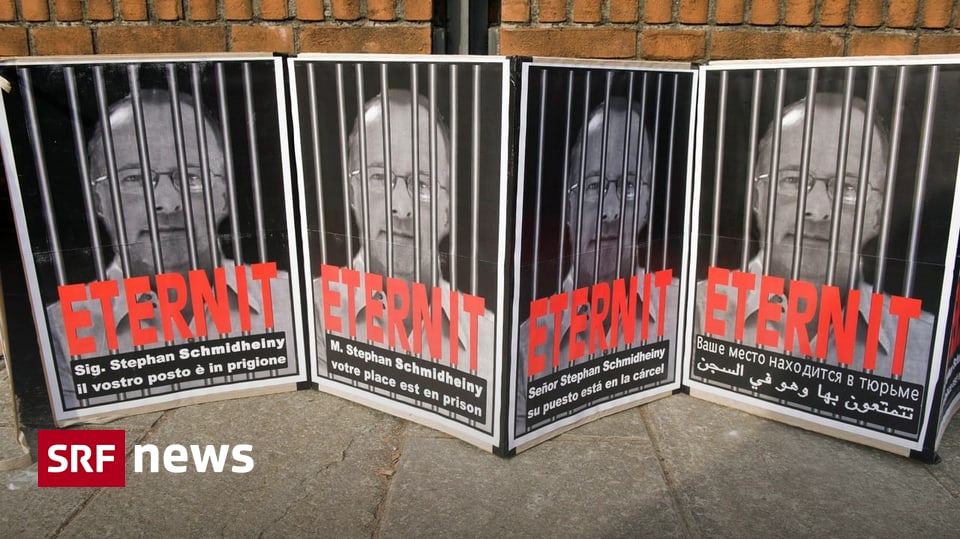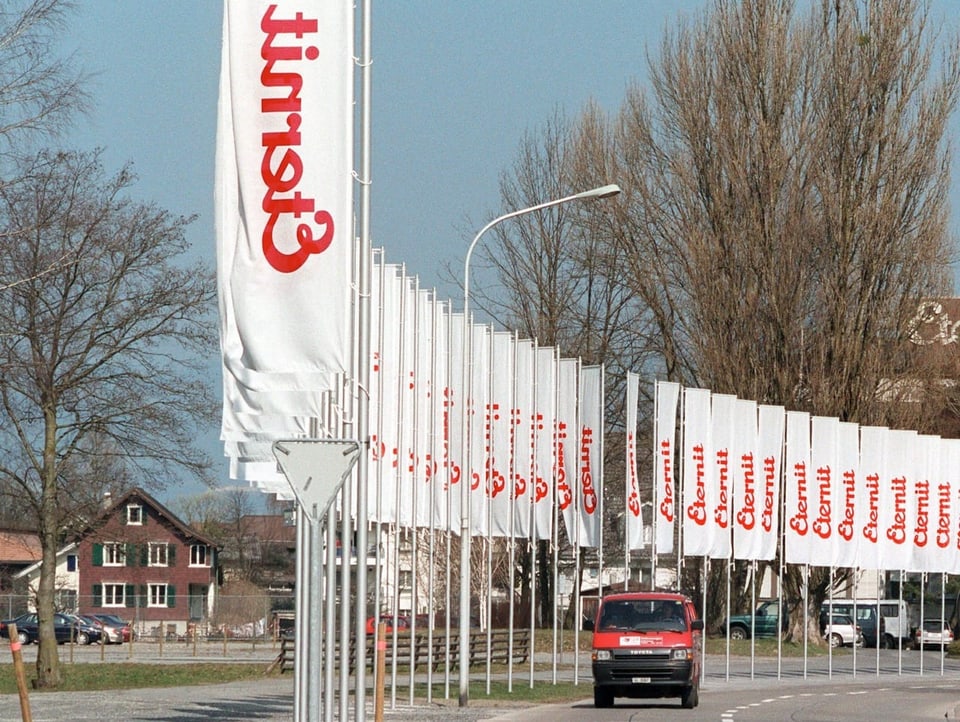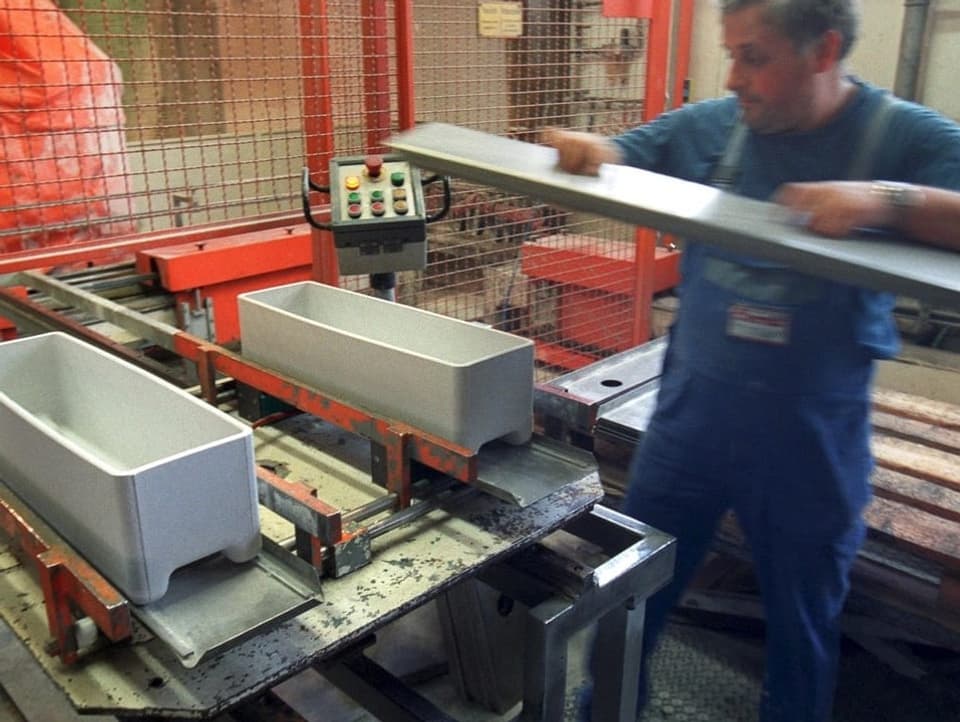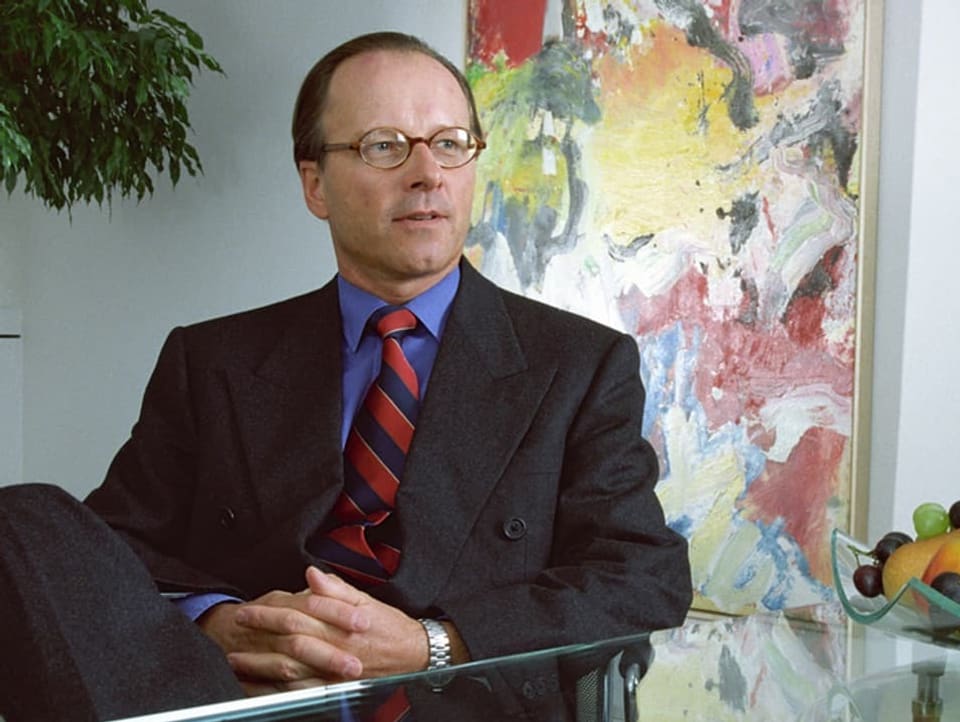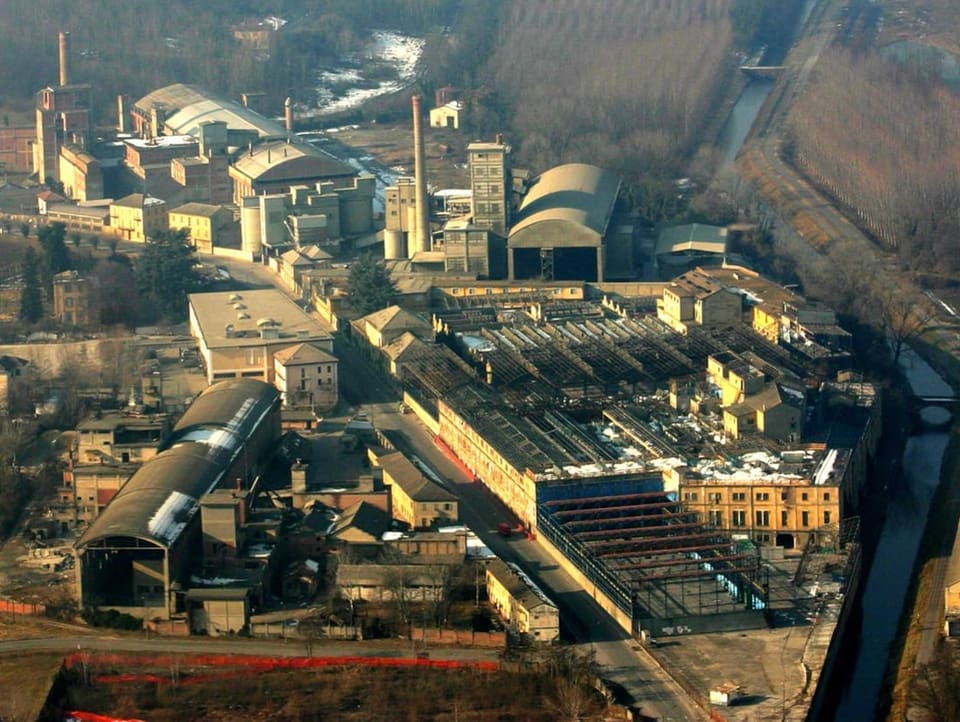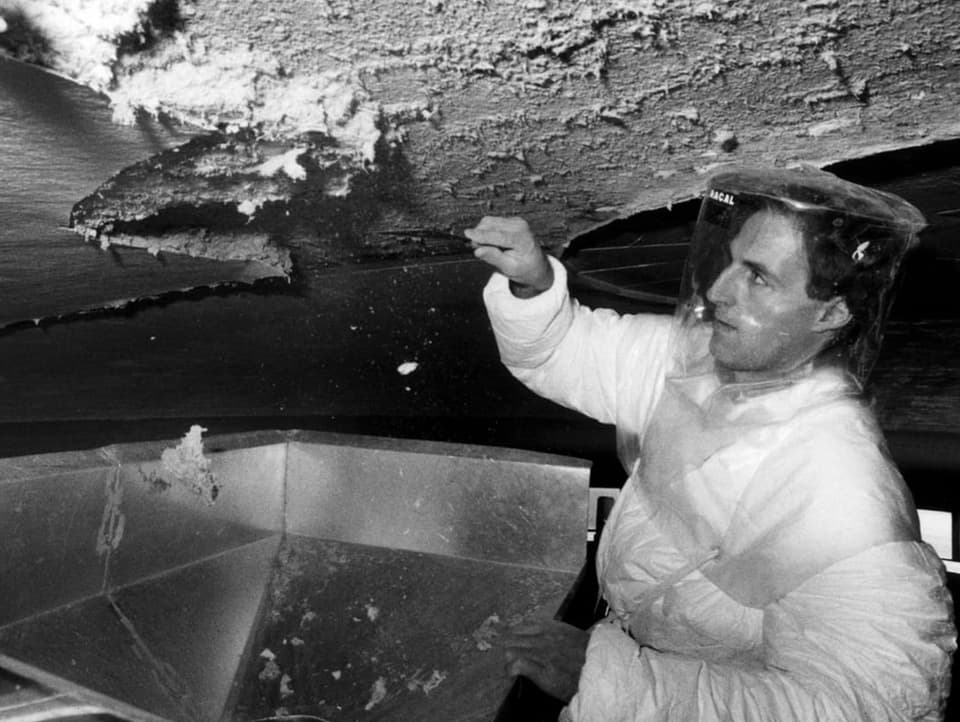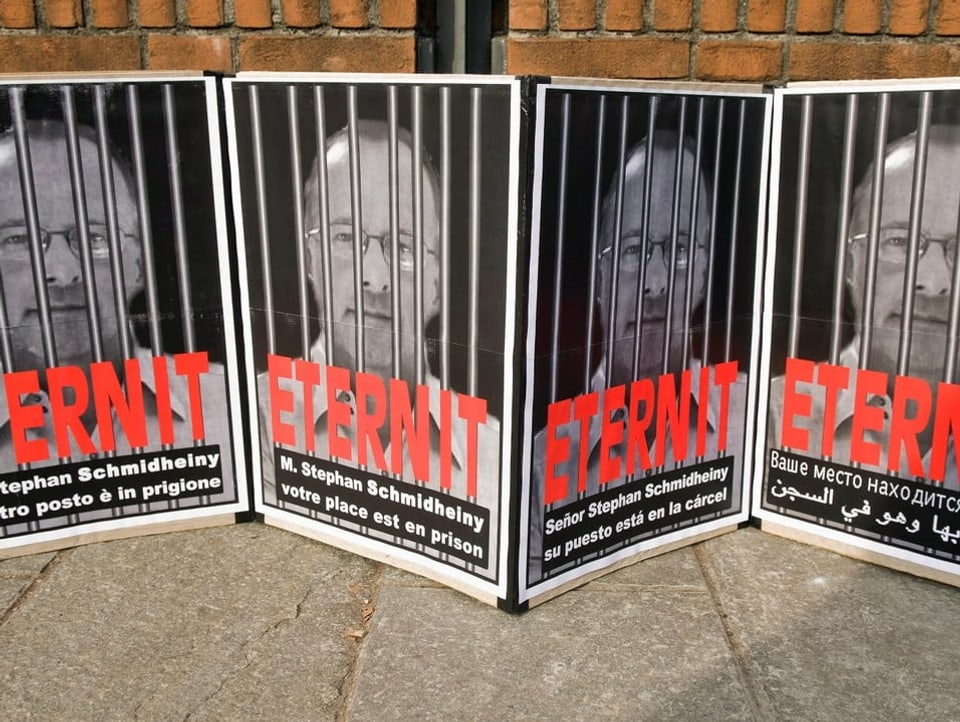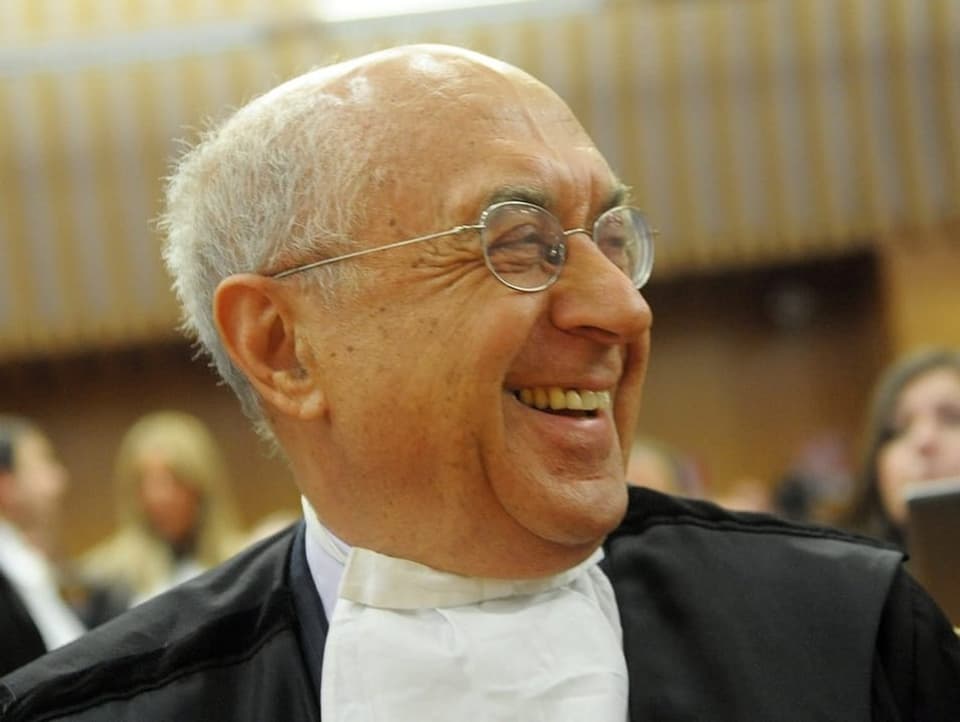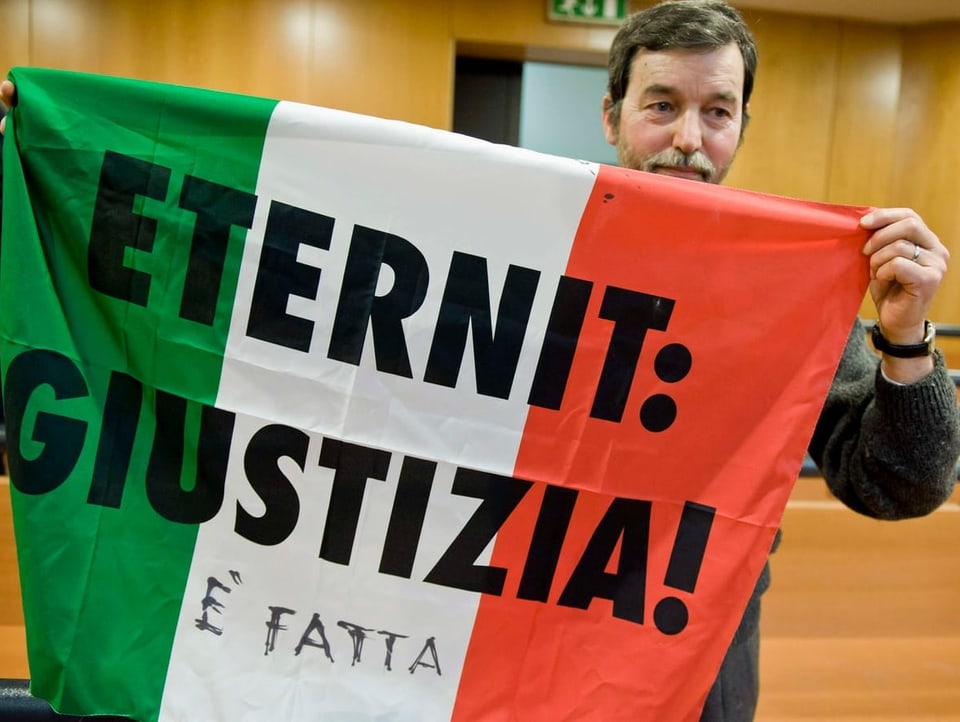Contents
The Swiss industrialist Stephan Schmidheiny has been sentenced again in Italy. He is said to be responsible for thousands of deaths. The most important answers.
On Wednesday, the regional court in Novara, Italy, sentenced Stephan Schmidheiny to twelve years in prison for the negligent killing of 147 people. The verdict is part of a legal saga that has now lasted almost 40 years.
The background: Schmidheiny joined his father’s company in the 1970s. The Eternit Group was active in more than 20 countries – at four locations in Italy alone. In 1973 the majority of the plant in Casale Monferrato in Piedmont was acquired. At peak times, up to 2,000 people worked there in asbestos processing and made pipes and roof panels. Eternit Italia is accused by the Italian judiciary of being responsible for the death or illness of more than 3000 workers and local residents between 1966 and 1986.
The company Eternit: The origins of the family business go back to the 1860s, when Stephan Schmidheiny’s grandfather founded a brick factory. Asbestos processing was added from the early 20th century. In Holderbank AG, the family also set up a cement plant, which would later become the Holcim company. In 1974, the then 26-year-old Stephan entered the business. Two years later he took over the leadership of the group. In Switzerland, Eternit maintained factories in Niederurnen in the canton of Glarus and in Payerne. Father Max Schmidheiny died in 1991 as one of the richest Swiss. In 1997 the Swiss Eternit division was merged into the Holcim group, the factories in Niederurnen and Payerne had already been sold by that time.
The danger of asbestos: The building material was popular for decades because it was practical, cheap and fireproof. However, it was no longer a secret that asbestos is dangerous to health. Anyone who inhales asbestos fibers must fear lung cancer and mesothelioma – a cancer of the pleura and peritoneum. Scientists proved this in the early 1960s. Since then, tens of thousands of people have died from these diseases. The consequences of contact with the substance often only become noticeable decades later. In Switzerland, many claims therefore became statute-barred after ten years – unlike in Italy, where the statute of limitations only applies from the onset of illness or death.
The question of guilt: Stephan Schmidheiny’s lawyers have always argued that their client was not directly responsible for the operational management of the plants in Italy. From the late 1970s, he was also responsible for Eternit bringing alternatives to asbestos onto the market and preparing the end of processing. According to their own statements, the employees in Casale had been working for a long time to improve safety conditions in the plant. The factory then had to be cleaned up for years before it could finally be demolished.
To person: Stephan Schmidheiny had already sold his Eternit shares at the end of the 1980s. In the following years he was active with a wood and pipe conglomerate in South America, where he also lived partly. In 2003 he withdrew completely from business activities. Over the years he has sat on the board of directors of several major Swiss companies (ABB, UBS, Nestlé). In the mid-1980s, he was involved in founding Swatch together with Nicolas Hayek, among others. His fortune is currently estimated at 2.3 billion US dollars by the business magazine Forbes. In addition to art, he has devoted himself to philanthropy. Together with his wife Viktoria, he is said to have donated over a billion Swiss francs to charitable causes over the past few decades. In 1992 he worked for the UN at the world climate conference in Rio de Janeiro. He has published several books. Stephan Schmidheiny is 75 years old.
